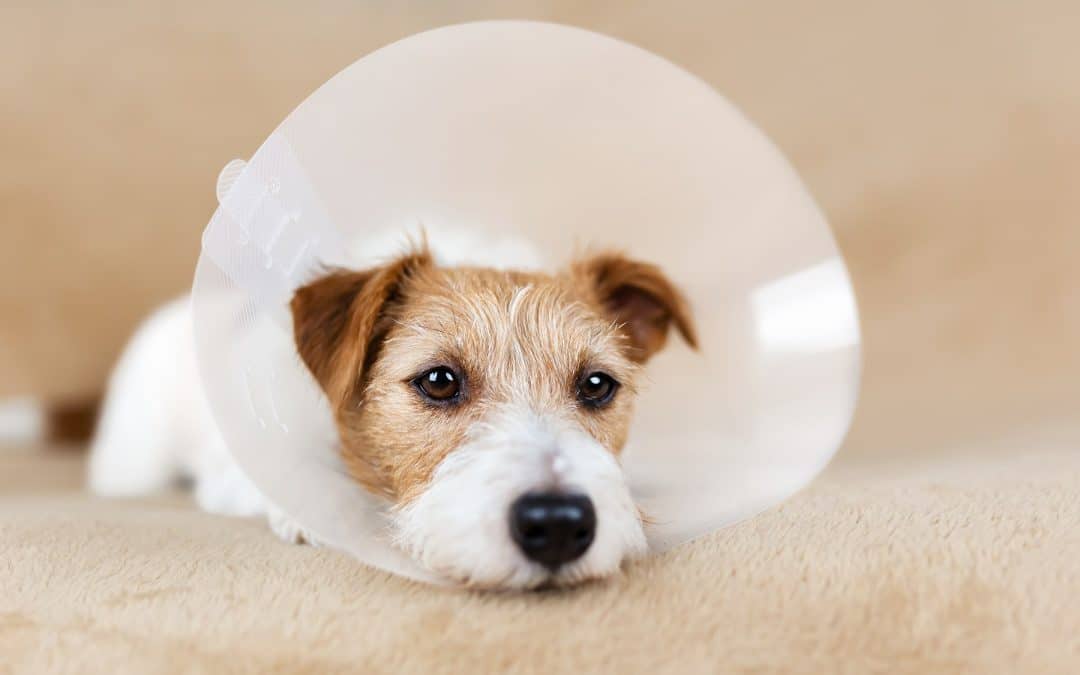Spaying and neutering your pet is one of the most important steps you can take to protect their health and well-being. Not only does it prevent unwanted litters, but it also provides long-term health benefits, behavioral improvements, and even a longer lifespan for your furry companion.
At Bluegrass Veterinary Hospital, we understand that pet owners want the best for their animals, and we’re here to guide you through the when, why, and how of spaying and neutering.
This Article Will Address:
- What is the difference between spaying and neutering?
- When should I spay or neuter my pet?
- What are the health benefits of spaying or neutering?
- How does spaying or neutering affect behavior?
- How do I prepare my pet for spay/neuter surgery?
- How long does the procedure take?
- What is the recovery process like?
- How much does spaying or neutering cost?
Expect Kindness & Compassion
Comprehensive Veterinary Care for Your Four-Legged Family Member.
What is the Difference Between Spaying and Neutering?
Spaying (for females) involves removing the ovaries and uterus to prevent pregnancy. Neutering (for males) involves removing the testes to eliminate reproductive ability.
These procedures offer numerous benefits, including:
- Preventing unplanned litters that contribute to pet overpopulation.
- Reducing the risk of certain diseases, including infections and reproductive cancers.
- Improving behavior by decreasing aggressive tendencies and marking habits.
At Bluegrass Veterinary Hospital, we use state-of-the-art surgical techniques to ensure a safe and comfortable procedure for your pet.
When Should You Spay or Neuter Your Pet?
The right timing for spaying or neutering depends on your pet’s breed, size, and health:
- Small-Breed Dogs: Spay before the first heat cycle (around 5-6 months), neuter at 6 months.
- Large-Breed Dogs: Neutering is best between 9-15 months, while spaying depends on breed-specific health factors.
- Cats: Can be spayed or neutered as early as 8 weeks, but it’s commonly done at 4-6 months.
The best way to determine the timing for your pet is to schedule a consultation with one of our experienced veterinarians at Bluegrass Veterinary Hospital.
What Are the Health Benefits of Spaying or Neutering?
Spaying and neutering are not just about preventing reproduction—they offer significant health advantages, including:
- Lower risk of cancer: Spaying reduces the risk of mammary, uterine, and ovarian cancer, while neutering prevents testicular cancer and helps prevent prostate cancer.
- Reduced risk of infections: Protects against life-threatening uterine infections (pyometra) and prostate issues.
- Longer, healthier life: Studies show that spayed/neutered pets live longer due to reduced health risks.
When performed at the right time, spaying and neutering can add years to your pet’s life!
How Does Spaying or Neutering Affect My Pet’s Behavior?
Behavioral improvements are one of the most noticeable benefits of spaying and neutering:
- Decreased aggression related to mating instincts.
- Reduced marking and spraying behavior in male cats and dogs.
- Less roaming, which helps prevent accidents and injuries.
If you’ve noticed territorial behavior, excessive barking, or mounting, neutering may help curb these habits.
How Do I Prepare My Pet for Spay/Neuter Surgery?
To ensure a smooth and stress-free experience, follow these steps:
- Schedule a pre-surgery exam at Bluegrass Veterinary Hospital.
- Fast your pet as instructed by our veterinarians.
- Ensure your pet is healthy and up-to-date on vaccinations.
Our team will walk you through every step to ensure your pet is comfortable and safe before surgery.
How Long Does the Spay/Neuter Procedure Take?
The surgery itself typically lasts between 30 minutes to an hour, depending on the pet’s size and the type of procedure. In most cases, pets can go home the same day, but they will require rest and monitoring to ensure a smooth recovery. At Bluegrass Veterinary Hospital, we use minimally invasive techniques and expert pain management strategies to help your pet heal as quickly and comfortably as possible.
What is the Recovery Process Like After Spaying or Neutering?
Post-surgical care is simple but important for a smooth recovery:
- Rest for 7-10 days to allow proper healing.
- Use a cone to prevent licking or chewing at the incision.
- Monitor the incision site for any redness, swelling, or discharge.
- Limit activity—no running, jumping, or rough play.
If you notice signs of infection or discomfort, call Bluegrass Veterinary Hospital immediately for guidance.
How Much Does Spaying or Neutering Cost?
The cost of spaying or neutering varies based on factors such as the pet’s size, species, and any additional services needed, including pain management or post-operative care. At Bluegrass Veterinary Hospital, we believe in transparent pricing and strive to provide affordable options for pet owners. Contact us today for a personalized estimate tailored to your pet’s specific needs.
Schedule a Spay & Neuter Consultation in Gallatin, TN
Spaying or neutering is one of the most important decisions you can make for your pet’s long-term health, behavior, and overall well-being. At Bluegrass Veterinary Hospital, we are committed to providing expert veterinary care with a focus on safety, comfort, and effectiveness. If you’re considering spaying or neutering your pet, schedule a veterinary appointment in Gallatin, TN. Let us help your pet live a healthier and happier life.
Sources:
- American Veterinary Medical Association (AVMA) – Spay & Neuter Guidelines
- American Kennel Club (AKC) – The Right Age for Neutering & Spaying
- American Animal Hospital Association (AAHA) – Veterinary Spay/Neuter Recommendations
Dr. Benjamin L. Zimmerman, DVM
Dr. Benjamin L. Zimmerman, co-owner of Bluegrass Veterinary Hospital, has been dedicated to veterinary medicine since he was eight, inspired by a formative experience on his uncle’s chicken farm. With extensive hands-on experience on various farms, he values educating pet owners about their furry companions. When not caring for animals, he enjoys playing the fiddle, cooking, and spending time outdoors with his family and pets.


